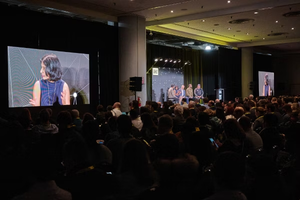Newspapers Sue OpenAI, Microsoft Over Unauthorized Article Use
Eight newspapers are behind the lawsuit, including the Chicago Tribune, the Denver Post and the New York Daily News

A group of newspapers is taking legal action against OpenAI and Microsoft, claiming their AI models were trained on their articles without permission.
The lawsuit, filed in the Southern District of New York, alleges the companies appropriated copyrighted articles to develop ChatGPT and Microsoft Copilot, likening their alleged actions to “theft.”
“[OpenAI and Microsoft] have created those generative AI products in violation of the law by using important journalism created by the publishers’ newspapers without any compensation,” the lawsuit claims.
Eight newspapers are behind the lawsuit, including the Chicago Tribune, the Denver Post and the New York Daily News. All of the plaintiff papers are owned by investment firm Alden Global Capital.
Demanding a jury trial, the publishers are seeking a ruling that OpenAI and Microsoft unlawfully and unfairly copied their content.
The papers are also seeking compensatory damages and to obtain a portion of the profits the companies garnered from the alleged copying of their content.
The 294-page lawsuit claims that AI systems like ChatGPT and Microsoft Copilot pose a “threat” to local newspapers by taking their content without compensation.
The suit reads: “Microsoft and OpenAI simply take the work product of reporters, journalists, editorial writers, editors and others who contribute to the work of local newspapers, all without any regard for the efforts, much less the legal rights, of those who create and publish the news on which local communities rely.
“The publishers have spent billions of dollars sending real people to real places to
report on real events in the real world and distribute that reporting in their print newspapers and on their digital platforms. Yet [OpenAI and Microsoft] are taking the publishers’ work with impunity and are using the publishers’ journalism to create generative AI products that undermine the publishers’ core businesses by retransmitting ‘their content,’ in some cases verbatim from the publishers’ paywalled websites to their readers.”
The lawsuit contained a litany of example generations from the at-issue AI products showing alleged outputs containing “verbatim excerpts” of the newspapers’ content.
Just this week, the ChatGPT maker penned its latest deal with the Financial Times, gaining access to its trove of content for model training. FT news articles will also appear in ChatGPT as summaries and links to relevant articles in response to particular user queries.
The suit also claims that ChatGPT and Microsoft Copilot “falsely attribute inaccurate reporting” to the newspapers.
“Beyond just profiting from the theft of the publishers’ content, defendants are actively tarnishing the newspapers’ reputations and spreading dangerous disinformation,” the publishers allege.
Rothwell, Figg, Ernst & Manbeck is representing the newspapers. It’s one of two law firms involved in another OpenAI copyright infringement case brought by the New York Times.
OpenAI denied any wrongdoing in its dispute brought by the New York Times, counterclaiming that the paper manipulated ChatGPT into generating copyrighted content to bring the lawsuit.
The Microsoft-backed company said earlier this year during U.K. Parliamentary questioning that it would be “impossible” to develop large language models without access to copyrighted material.
Referencing OpenAI’s “impossible” claims, the newspapers’ lawsuit stated: “Despite admitting that they need copyrighted content to produce a commercially viable generative AI product, [OpenAI] contends that they can fuel the creation and operation of these products with the publishers’ content without permission and without paying for the privilege. They are wrong on both counts, as this lawsuit will prove.”
OpenAI has struck partnerships with publishers, including the AP and Axel Springer, to mitigate potential legal issues with future systems.
About the Author(s)
You May Also Like


.jpg?width=700&auto=webp&quality=80&disable=upscale)
.jpg?width=700&auto=webp&quality=80&disable=upscale)
.jpg?width=700&auto=webp&quality=80&disable=upscale)
.jpg?width=300&auto=webp&quality=80&disable=upscale)
.jpg?width=300&auto=webp&quality=80&disable=upscale)
.jpg?width=300&auto=webp&quality=80&disable=upscale)

.jpg?width=300&auto=webp&quality=80&disable=upscale)